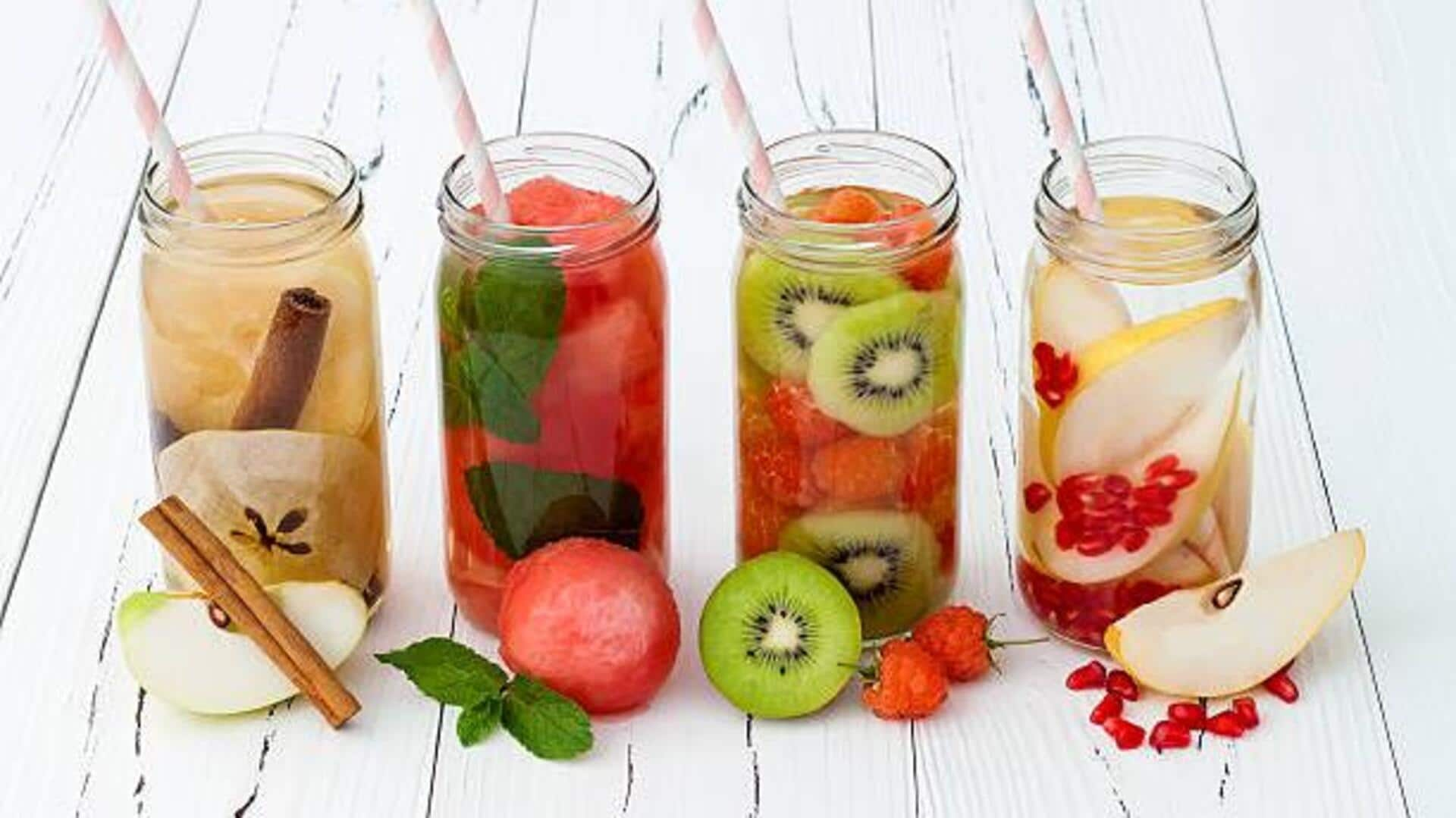
Truth about flavored water: Myth v/s facts
What's the story
Flavored water has become a go-to choice for those looking for an alternative to plain water. However, some myths regarding its health implications have surfaced, leading to confusion among consumers. Here's debunking these myths with fact-based insights into flavored water's actual effects on health. By looking at common misunderstandings, we can learn how flavored water can fit into a healthy lifestyle, without any worries.
#1
Myth: Flavored water causes weight gain
One common myth is that flavored water causes weight gain due to added sugars and calories. While some flavored waters may contain sugar, many options are available with zero calories and no added sugars. It is important to read labels carefully and choose products that fit with dietary goals. Going for naturally flavored or unsweetened versions can keep the diet balanced without causing weight gain.
#2
Myth: Flavored water is dehydrating
Another misconception is that flavored water doesn't hydrate as well as plain water does. In reality, most flavored waters are as hydrating as regular water since they mostly contain H2O with added flavors or essences. The key is to make sure the product doesn't contain high amounts of caffeine or other diuretics that could potentially cause dehydration.
#3
Myth: Artificial sweeteners are harmful
Concerns related to artificial sweeteners in flavored waters are often due to misconceptions about their safety. Regulatory bodies such as the FDA have approved a number of artificial sweeteners for consumption, following extensive testing. While some may prefer the natural route, moderate consumption of artificially sweetened beverages is generally safe for most people as part of a balanced diet.
#4
Myth: Flavored water damages teeth
There has been a belief that the acidity in some flavored waters can wear away tooth enamel over time. While some acidic flavors may be risky if consumed in excess, occasional intake doesn't usually affect dental health much more than other acidic foods or drinks, such as citrus fruits or juices, would. Good oral hygiene and moderation can help prevent potential risks from acidity in drinks.